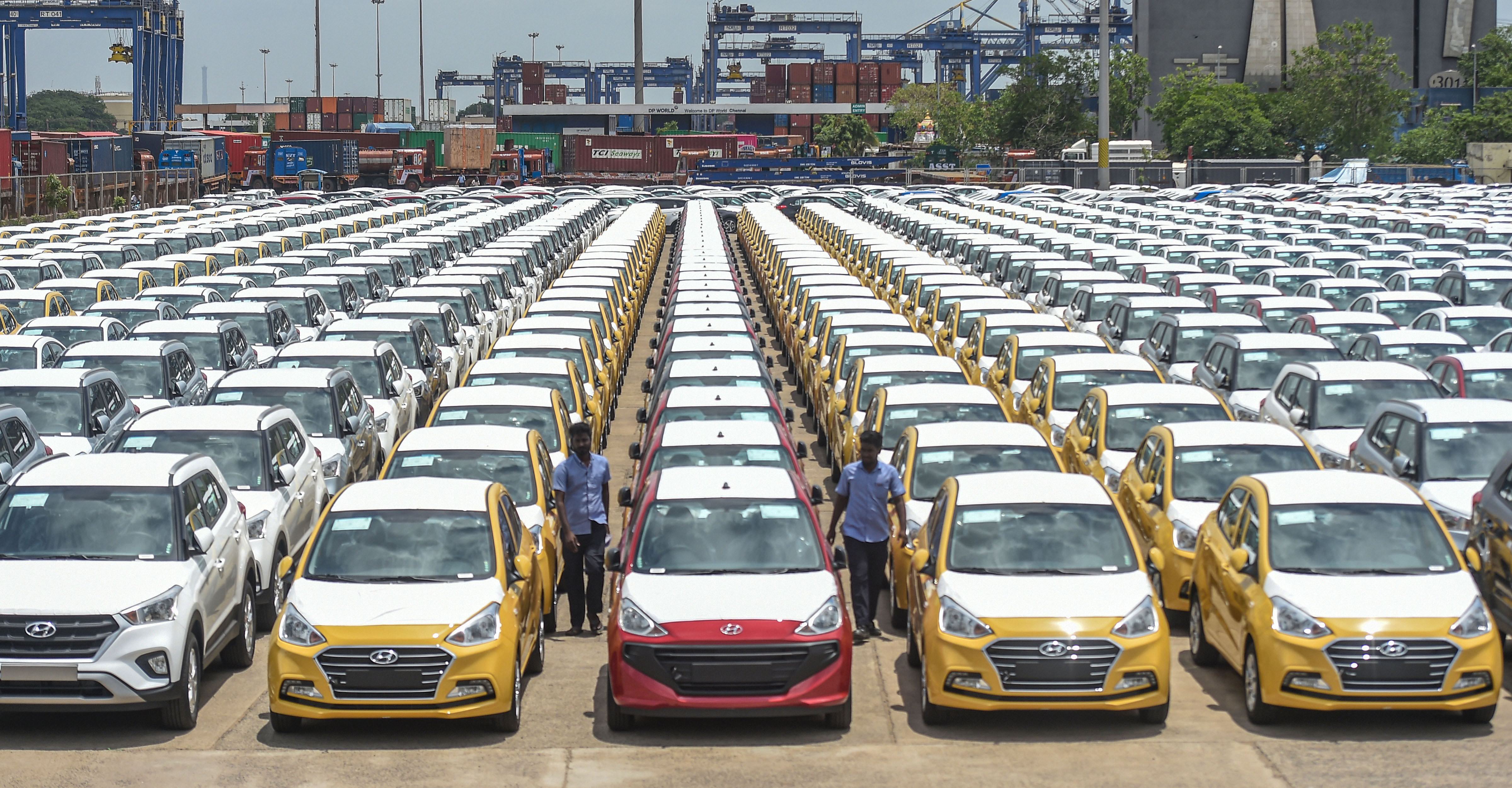
Auto industry expects GST rate cut on vehicles following Council meet

Four-wheeler manufacturing companies are now expecting a cut in GST rates following a slew of measures announced by Finance Minister Nirmala Sitharaman on August 23 to revive the industry.
Sitharaman had indicated that she would take up the demand of automobile industry to bring GST on vehicles from 28% to 18% at the 37th meeting of GST Council, which is slated for September 20 in Goa.
“Our major expectation is announcement on GST reduction in automobile. We will get to know more only after the GST council meets. Eventually, we hope that there would be reduction,” Balasubramniam Sivasami, vice-president, Chennai Ford Motors, told The Federal.
Also read: Nirmala Sitharaman rolls out measures to boost economy, promises more
He hoped that the measures announced by the Finance Minister on August 23 for the revival of the industry will bear fruits. “The automobile industry is facing a very uncertain period. We are waiting to see where we will get orders from. Every avenue for getting business and stimulating demand will be helpful.”
“Moves like extending operations of Bharat Stage (BS) IV registered vehicles are welcome, and the push for reducing auto loan rates is also reasonable. These will at least help improve market sentiments,” he said.
The Finance Minister had on August 23 announced a slew of measures to boost the economy. Among them, she said that BS IV vehicles purchased before March 2020 will remain operational for the full period of their registration. She also advised banks to pass on benefits of reduced repo rates to consumers in the form of cheaper auto loans.
The government also announced the lifting of the ban on purchasing of new vehicles by government departments. Besides, depreciation benefits were enhanced from 15% to 30% until March 2020. This move is likely to help reduce the taxable income.
Some economists though have their doubts on whether these moves would actually help the industry. They ask why the government did not announce any measures which may give direct benefits to the employees.
Venkatesh Athreya, an economist, said the way the crisis has been defined, it appears that a majority of the people have been ignored. “These moves cater to the interests of the industry and not workers. The reason why someone does not buy a car has more to do with assessment of repayment capability and that has not been addressed.”
Also read: Vehicle sales hits 19-yr low; industry seeks action to save jobs
On Monday (August 26), when the stock markets reopen, it is expected that they would react positively.
“The negativity will lift, but euphoria cannot be expected. If the announcement was made on Thursday, we could have expected a lot of excitement on Friday. But, the fact that there is a 48 hour window to assimilate it does not go for a lot of euphoria,” said Shyam Shekar, a stock market analyst.
“Market confidence has been deeply dented, so it might take time. The shift will be gradual rather than rapid,” he said.
At closure on Friday (August 23), the BSE S&P auto stocks stood at 15,728.03 points. Most of the auto stocks have fallen in the past one month on the back of a massive plunge in vehicle sales, at an average of over 20%. But after the announcement, a bearish trend was observed in anticipation ahead of the FMs’ meeting. When the market reopens on Monday, it is likely to give a clear picture of what investors feel.


